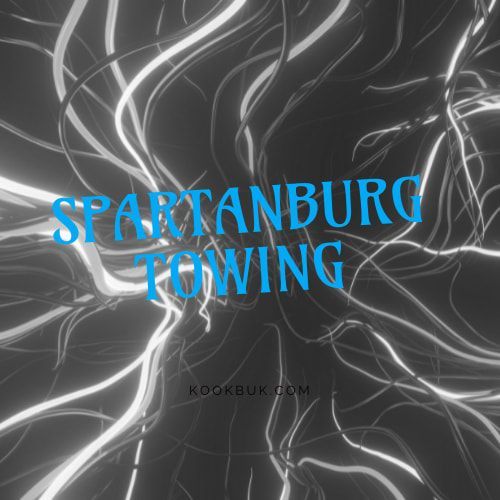Spartanburg Towing FAQ's
If you have been in an accident, you almost certainly have questions.... We have the most frequently asked questions right here to help ya out!
If you are involved in a collision and your vehicle is no longer safe to drive (or even questionable!) you will almost certainly need to have it towed to a repair shop or maybe a body shop. But, before you call to have your vehicle towed, you should be aware of your rights, your policy coverage, and then what to expect when the tow truck driver arrives. While the majority of tow truck drivers are honest professionals, there will always be a bad apple somewhere in the sphere of services that try to take advantage of those who are shook up in this kind of a difficult circumstance. Following an accident, anyone can become especially vulnerable. But there is good news! There are some precautions you may take to prevent getting into a jam before deciding whether or not to have your vehicle towed. Before allowing anyone to tow your car anywhere, you should always:
* Indicates required field
We will get back to you as soon as possible.
Please try again later.

1. Call your car insurance company first, even if it's after hours. Your insurance can advise you on what to do next, recommend fair towing costs, or tell you the rates they can pay out based on your policy coverage. They can also assist in avoiding unnecessary delays in getting your car fixed by their connected teams. They may even be able to arrange for one of their preferred repair facilities to pick up your damaged vehicle for you in some situations. If you can't reach your insurer right away, or if you prefer not to have your insurer find a tow company for you, you can still have your vehicle towed, but keep the rest of the tips on our handy list here in mind, AND keep all receipts and documents related to your tow, as many insurance companies can reimburse you for some or even all of the expenses, depending on your policy coverage.
2. Determine whether or not your vehicle requires towing. When you've been in an accident, your first instinct may be to call a tow truck. However, you may be able to safely drive your vehicle away from the site on your own. The most important thing to remember is safety of you as the driver, and any other passengers or people around. If you can answer yes to the following questions, you can probably drive your own car instead of calling a tow truck:
• Do you have any fluid leaks coming from your vehicle?
• Are your headlights and taillights still operational?
• Are all of your mirrors in good condition?
• Does the steering and braking feel natural and effective?
• Can your hood still close fully and securely?
3. If you can't answer yes to all of these questions or have additional reason to suspect your car isn't safe to drive (for example, if the airbags have deployed or there's damage to the wheels or your rim), it's best to have it towed. If there is a police officer on the scene, you can also ask them to assist you in determining if your car is safe to drive. In roadside situations, police officers are very friendly and educated, and their major concern is your safety as well as the safety of other drivers in our communities.
4. Call your insurance carrier for roadside assistance services; many drivers have coverage that they are unaware of! If they are unable to help you, remember to save all receipts and documentation connected to your car's status, as you may be able to get your money back through your insurance company or roadside assistance business.
5. Make sure your vehicle is properly prepared for the tow! Take thorough photos of the damage and the crash area before your vehicle is moved — and don't forget to include the inside of your vehicle as well. You should also take all of your personal assets and requirements out of your automobile before giving anyone else access to it.
5. Confirm that the tow truck that arrives is the one you requested — or, if you did not request it, that it is from a trustworthy company. Tow trucks and tow operators are constantly on the road, but this does not imply that they are approved business tow operators. When a tow company lacks integrity, they may even try to convince you that your vehicle needs to be towed even though it is still drivable. Proceed with caution if a tow truck appears too quickly at the site, yet you didn't contact it and you can't prove it's from a respectable company.
6. Tell the driver where you want or need your vehicle to be dropped off. You can have it towed to one of your insurance company's chosen repair facilities (which they usually arrange ahead of time), a repair facility of your choosing, or your favorite mechanic. It's critical to understand that you have the right to choose who can tow your vehicle and where it should be taken — a reputable tow truck service should not insist on taking your vehicle to a specific location unless the police provide directions, but a reputable tow company can usually give you a local recommendation if you'd like.
7. Carefully and completely study the papers issued by the police and tow truck driver before signing or making any payment. The tow truck driver must (or should!) provide you with an itemized invoice to evaluate, rather than a blank contract or work order. In general, this is a straightforward statement: "Rollback transport 18 miles for a gray 2019 Nissan Rogue" Make certain that you are merely agreeing to pay to have your vehicle towed to a site of your choosing, rather than signing a work order or committing to have your vehicle serviced by a certain facility. Never sign a contract that does not precisely define what you're paying for and where your vehicle will be towed to, and, once again, retain a duplicate of any documentation pertaining to your vehicle to ensure your insurance company has everything they need to retrieve you any money you may be owed.
8. Confirm if the quoted price is reasonable. If you're unsure, your insurer's claims department should be able to look into fair towing fees for you. Depending on where you reside,tow truck drivers may be required to adhere to standardized rates, and there may also be a maximum up-charge restriction. If you can't get in touch with your insurance company over the phone, you should be able to obtain your local acceptable tow rates on their website.
9. We cannot emphasize this enough: save the receipt as well as any papers issued by the tow truck or police. You'll almost certainly need to present it to your insurance carrier so that they can compensate you if your policy covers towing or other roadside troubles.
While these suggestions are based on broad standards that apply in most places, towing laws and regulations differ by state, county, and even city. It's usually a good idea to be aware of the towing rules in the area you're travelling in case your vehicle needs to be towed. If you have issues about your automobile insurance coverage or want to ensure that your policy covers towing, you should contact your car insurance broker directly about your individual policy coverage, as neither the police nor the tow operator can actually address those questions.
All Rights Reserved | Spartanburg Towing
